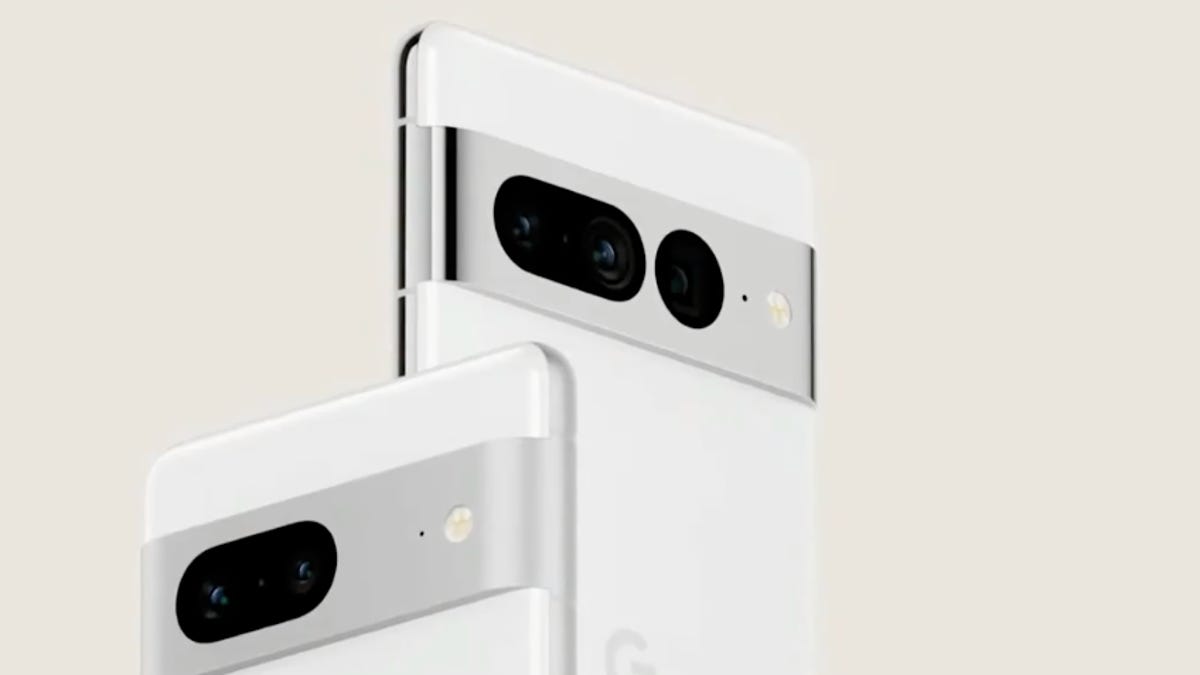Pixel 7 Pro Updates That I'm Hoping Google Announces Tomorrow
The Pixel 7 lineup is nearly here, and I've got high hopes. Here's what I want to see.

When it launched last year, I called Google's Pixel 6 Pro "the best Android phone you can buy" in my review. I even gave it a coveted CNET Editors' Choice award. Why? Because its combination of slick interface, decent performance and superb cameras -- not to mention its more affordable price compared to other flagship Android phones -- made it a superb all-around pick.
Very soon Google will launch its follow-up. The Pixel 7 and 7 Pro are expected to appear at the Made by Google event set for Thursday in New York.
But Google has a fight on its hands, with Apple's new iPhone 14 and 14 Pro packing superb performance and excellent cameras. And, of course, Samsung's Galaxy S22 lineup offers top tech all round. And while I'm not expecting a total transformation to the Pixel line, there are some elements I'm already excited to know more about.
So let's dive in.
Pixel fall event
Second-generation Google Tensor chip
Google equipped the Pixel 6 and 6 Pro with its own home-made processor, named Tensor. It was a big move to create that kind of tech in-house, rather than simply using a chip from a manufacturer like Qualcomm. Google wanted to make a chip that's particularly adept at AI and machine learning -- software features that it's increasingly making use of in Android, like the Magic Eraser object removal tool in the camera.
That's all well and good, but the actual performance on paper was only OK, with it falling behind competitors like Samsung or Apple on benchmark tests. And sure, benchmarks are essentially meaningless in the real world, but it did give the impression that the Pixel 6 series wasn't quite up to speed against its rivals, and that's a shame for a major flagship phone.
The Pixel 6 Pro was a superb Android phone.
Google hasn't said much about what we could expect from a second-generation Tensor chip, but a speed boost is likely to be part of the story. But it's not just about raw performance. Google has had time to refine its processors, and we may see additional benefits to machine learning, making existing tasks like real-time language translation even better or even allowing for new applications that we're yet to see.
Upgrades to an already excellent camera
I loved the camera on the Pixel 6 Pro. Its main lens could take beautifully exposed, vibrant images while its 4x optical zoom was great for getting closer into the action. It's one of the best phone cameras out there, and that means the Pixel 7 Pro should already be off to a flying start.
Google's early images of the Pixel 7 Pro show a similar triple camera setup on the back.
The images we've seen of the phones show an almost identical rear camera setup, with two cameras on the base Pixel 7 and three on the 7 Pro. So I'm, of course, expecting the usual lineup of ultra-wide, standard zoom and telephoto zoom on the phone. But I'm hoping that there has been some tinkering -- or even new hardware -- to make those cameras even better. I'd love to see a larger image sensor on the main camera, for example, for better dynamic range, and I'd even be keen to see a longer telephoto zoom range -- perhaps even one that rivals the superb 10x optical zoom of the Samsung Galaxy S22 Plus.
Even if the hardware remains basically the same, I'm expecting there will be continued discussion about how Google's computational photography and AI in its cameras -- helped by the new Tensor 2 chip -- will allow for more natural skin tones, better low light performance and possibly improved stabilization for video.
The Pixel 7's aluminum camera bar blends neatly with the frame of the phone.
A fresh, slick design
I liked the look of the Pixel 6 series. The camera bar across the back gave the phones a unique look that set them apart nicely from the swathes of plain-looking handsets we tend to see these days. I even enjoyed the subtle orange tones of the "sorta sunny" color scheme. So I was pleased when I saw the early images from Google that it hasn't messed with a good thing too much.
The camera bar is there, but it's been transformed from a black glassy slab into a sleek-looking recycled aluminum strip that merges seamlessly with the aluminum surround.
We're expecting similar sizes as before too; 6.4 inches for the Pixel 7 and 6.7 inches for the 7 Pro. It's not a big design shift, sure, but the Pixel 6 was already a huge departure from the Pixel 5 that went before it. And Google really doesn't need to overhaul the design just yet. Based on the images, the subtle tweaks and use of aluminum has resulted in a great-looking bit of kit that I'm looking forward to getting in my hand.

